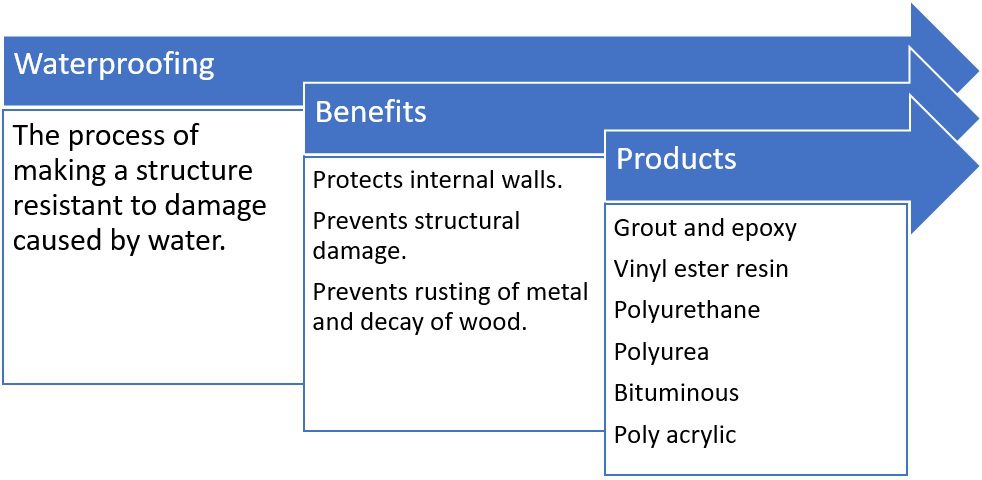For any home constructed using concrete, steel and cement, waterproofing is one of the important processes that has to be done during the construction phase. Waterproofing is done, to prevent damage to the interiors of the house from seepage of water. Using the right kind of waterproofing chemical is as important as the process itself. Some of the common problems, such as water seepage problems during the monsoon, water in the terrace, etc., occur due to lack of waterproofing or usage of poor materials or absence of waterproof paints. To help you avoid such situations, here are a few things that you should understand about waterproofing.
What is waterproofing?
In simple words, waterproofing is the process of making a structure waterproof or water-resistant, in order to keep it unaffected by water and increase its resistance against water under different conditions. Waterproofing of structures helps in reducing humidity inside the house and minimises damage due to water exposure. According to experts, waterproofing is also important for improving the longevity of the building.

See also: How to protect the exterior walls of your home during monsoons
Waterproofing chemicals and products
Grout and epoxy
This compound can be used in existing structures that are already in use and have developed cracks. These chemicals are required to be injected into the cracks, or by drilling holes into the surface to insert the material. A sealant is formed, which results in creating a water-resistant barrier.
Vinyl ester resin
These compounds are used on concrete surfaces as a way to prevent acid and corrosion damage. The resin creates waterproof membranes that guard against moisture and water damage.
See also: Why the monsoons are the best time to invest in property
Polyurethane
This chemical is used for roof waterproofing and on exposed areas. This is one of the most expensive chemical waterproofing methods available in the market.
Polyurea
Considered as one of the most resilient and flexible protective coatings, polyurea is known for being water resistant, abrasion resistant and very strong. This compound also contains antibacterial properties.
Bituminous
Bituminous, also known as asphalt coatings, is the best for waterproofing concrete foundations. Its waterproofing properties are dependent on the polymer grade used, as well as fiber added to the chemicals.
Poly acrylic
This is one of the most common and superior qualities of waterproofing material used for concrete structures. This chemical waterproofing solution is used to seal leakages on walls and for terrace waterproofing. Also, this type of waterproofing is done only by experts and highly trained professionals. This compound is often mixed with cement in the final step to seal the cracks.
See also: Tips to prepare your home for the monsoons
Waterproofing chemicals for wall plastering
The moisture arising due to rains can significantly damage the walls of a house. An affordable solution is preparing waterproof plaster mixed with mortar. Plastering is an effective method to safeguard the walls. It helps make the walls become more solid while enhancing the aesthetics.
Polyurethane is a widely used chemical used for waterproofing exposed surfaces, including roofs.
Polyurea is one of the best waterproofing chemicals in India and can be used to waterproof joints and surfaces in concrete structures.
See also: A guide to buying water tank for house
Home waterproofing advantages
There are several benefits and advantages of waterproofing your structure:
- Waterproofing prevents unwanted moisture from seeping into your walls.
- The use of waterproofing chemicals prevents damage caused due to seepage which may ruin the structural strength of the house.
- Seeping moisture and water can cause metals to rust and wood to decay. Waterproofing methods can avoid such damages.
- Foundation waterproofing prevents the foundation from getting weak, improving the value of your house in the market.
See also: What is water conservation?
FAQs
What is the best waterproofing product?
It depends on the type of cracks. You may need to seek expert advice from waterproofing contractors, to truly understand the exact needs.
What materials are used for waterproofing?
Different types of waterproofing chemical compounds are used to make the structure waterproof.
(With inputs from Surbhi Gupta)






